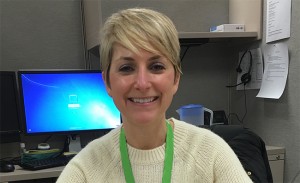Advice for First-Time Epic Consultants: Making a Career Change
 The transition from a permanent staff position in a hospital, where you’re helping to implement or manage an Epic installation, to becoming a project-based Epic consultant is a journey that offers challenges and rewards.
The transition from a permanent staff position in a hospital, where you’re helping to implement or manage an Epic installation, to becoming a project-based Epic consultant is a journey that offers challenges and rewards.
For those considering a career change into consulting, we advise talking to someone who has made the switch. One of our newest consultants, Pam, has done just that, landing her first assignment earlier this year at a client site in the northeast, where she travels weekly to assist on a large-scale Epic implementation.
In this, the first of a two-part interview with Pam, she shares some of her advice and experiences about her transition to becoming an Epic consultant.
Congratulations on your first-ever Epic consultant assignment. What were you doing prior to consulting?
I worked as a full-time Clindoc/Stork analyst, specializing in Reporting Workbench and Radar dashboards, at a hospital deploying Epic for the first time as their EHR solution. It was a three-year project, spanning across 14 hospitals in our health system. Prior to that, I worked in the ICU as a Registered Nurse. But I had actually started my career in IT, working in data modeling. I felt like my blend of clinical and IT experience, combined with what I had learned on the Epic project, made me a really good fit for consulting.
What considerations were top of mind for you when you decided to go into consulting?
My first priority was to make sure that all of the required travel would be conducive to my spouse and family situation. I have been married for 18 years, and my husband and I have always worked different shifts, so we were already adjusted to not seeing each other during the weekdays and maximizing our time together on weekends. I also discussed the career move with my elderly parents and in-laws. Both sets of parents were supportive of the career change and are in good situations right now where their personal and health needs are met. If my spouse or if family dynamics change, I may have to revisit the travel aspect of the job, but for now, it's a great fit.
See our Epic Consulting and Permanent Jobs here.
The other major consideration was finances. I could definitely earn more income as an Epic consultant, but I also knew there were trade-offs. For example, some traveling, hourly consultants may not have access to company benefits such as retirement plans, health insurance, and paid time off for sick days/vacation. There is also no way to know when the next contract is coming. Ideally, one would transition seamlessly from one client contract to the next, but there is no guarantee when/how long one may have to wait in between assignments.
In lieu of a company-sponsored retirement plan, I work with a financial analyst to implement my own personal retirement plan and set aside a large portion of my income for retirement. Fortunately, I am able to receive health benefits through my husband's employer. If this was not the case, I would potentially have to readjust my budget to accommodate and manage covering the cost of health benefits.
Life is unpredictable. Before submitting my resume, my husband and I saved up six months’ worth of expenses. This money is in a separate savings account, and we would only tap into it for emergencies or if I had long gaps between consulting gigs. Having some savings during this transition reduces fear of the unknown and gives peace of mind.
Describe some of the steps you took to find your first consulting assignment.
I was proactive in marketing myself. I started by updating my resume to reflect my most current experience and education, including my Epic experience, which was key. I knew prospective clients would want my references, so I reached out to personal and professional references, and obtained their permission and current contact information.
Next, I searched online to obtain a list of Epic consulting firms and contacted the ones that looked reputable, submitting my resume for their consideration. I spoke to a lot of recruiters and got positive feedback and advice from many of them.
While biding my time, I prepped for interviews by rehearsing my responses to potential interview questions. I also continued to improve my marketability, obtaining an additional Epic proficiency and badge.
I didn’t land a job immediately, and that was occasionally discouraging. But my Consultant Advisor at Healthcare IT Leaders helped put things in perspective while we searched for the right assignment.
After seven months, a great opportunity opened up with a client that had the perfect role for my skills. The wait was long and difficult, but worth it, knowing that this was the path I wanted to take my career.
